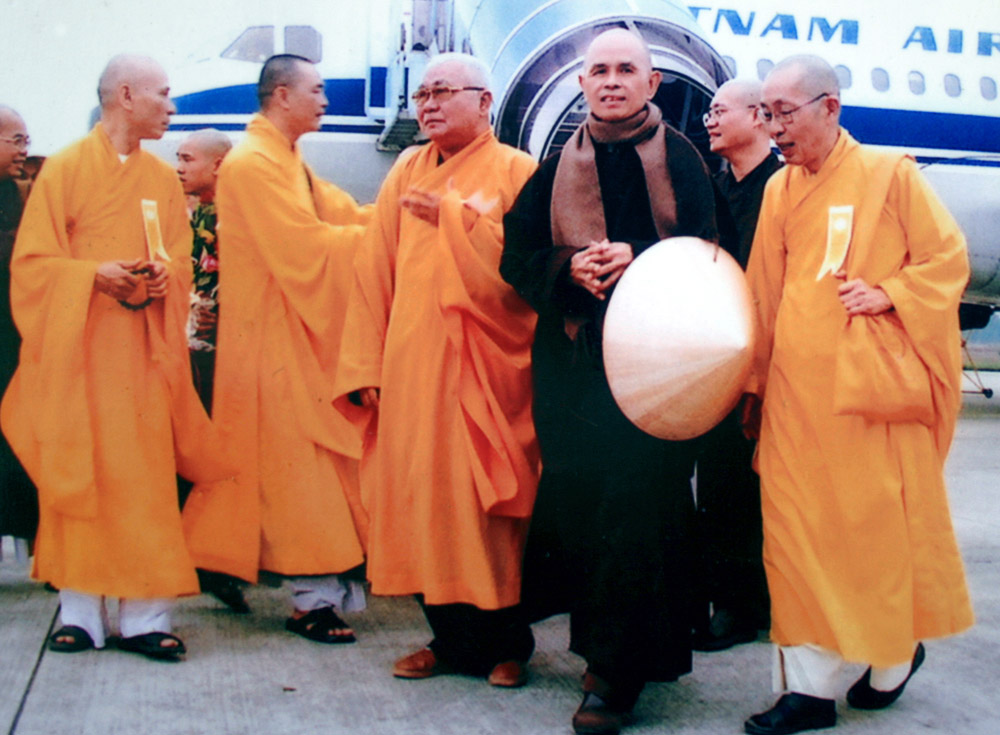禅の精神について書かれた記事で何度も目にした「ritual」の意味とは?
先週『「返事が遅くなってすみません」は英語で何と書く?』という記事で・・・
仕事をする時は仕事に集中し、ブログを書く時はブログに集中し、家事をする時は家事に集中し、遊ぶ時は全力で遊ぶ。そして寝る時は全力で寝る。
それを実現するために、いつ寝ていつ起きるのが最も起きやすいか、どの時間帯でブログに集中すると最も家事との両立がうまくいくか、仕事の後はどれだけ他のことをする余力があるか、などをきちんと把握することからとりあえず始め、試行錯誤を繰り返しながら、最もストレスのたまりにくいスケジュールを作っていこうと思います。
と書いたのですが、そのことをジェガーさんに言ったら、「それ、前に似たようなこと書いてある記事読んだで」と言って、『禅僧のように生きるために必要不可欠な12のルール』という記事のリンクを送ってくれました。
12 Essential Rules to Live More Like a Zen Monk | zenhabits(3.18.2008)
実はその前日、Facebook でもメッセージをいただき、「それは禅の精神ですね」と言われて「なるほど!」と思っていたところだったのでびっくり!さっそく記事に目を通してみると、”ritual” という言葉が何度か出てきました。
Zen monks have rituals for many things they do, from eating to cleaning to meditation. Ritual gives something a sense of importance — if it’s important enough to have a ritual, it’s important enough to be given your entire attention, and to be done slowly and correctly.
via 12 Essential Rules to Live More Like a Zen Monk : zenhabits
They are both great ways to practice mindfulness, and can be great rituals performed each day.
via 12 Essential Rules to Live More Like a Zen Monk : zenhabits
ポイント
“ritual” は、ここでは「決まったやり方」という意味で使われています。
- a formal ceremony
- something that you do regularly and always in the same way
(いつも同じやり方で定期的にすること、という意味ですね!)
つまり1文目は「禅僧は、食事から掃除、瞑想まで、さまざまなことに対して決まったやり方を持っている。決まったやり方は、物事に重要であるという感覚を与える — 決まったやり方を持つほど重要なことであれば、全神経を集中させて、ゆっくりと確実に行われるほど重要なことだろう」、そして2文目は「どちらも集中して物事を行う良い練習であり、毎日の儀式になり得る」と書かれていたのでした。
補足
というわけで、この記事を書いているのは禅僧ではありませんが、禅僧のように生きるための方法が12個紹介されていまました。
- Do one thing at a time.(一度に一つのことをする)
- Do it slowly and deliberately.(ゆっくり、丹念にする)
- Do it completely.(最後までする)
- Do less. (することを減らす)
- Put space between things.(時間に余裕を作る)
- Develop rituals.(決まったやり方を身につける)
- Designate time for certain things.(時間を決める)
- Devote time to sitting.(座禅の時間を設ける)
- Smile and serve others. (笑顔で、他の人に奉仕する)
- Make cleaning and cooking become meditation.(掃除と料理を、瞑想の時間にする)
- Think about what is necessary.(何が必要か考える)
- Live simply.(シンプルに生きる)
Don’t try to knock off a few tasks while eating or bathing. Zen proverb: “When walking, walk. When eating, eat.”
via 12 Essential Rules to Live More Like a Zen Monk | zenhabits
要は「マルチタスクではなく、シングルタスクをせよ」ということですね。確かに、2つのことを同時にすると、どちらかの集中力が欠けてしまうことはよくあります。マルチタスクの得意な人もいると思いますが、私は下手で、逆に効率が悪くなってしまうこともあるので、シングルタスクを極められるようになりたいです。
Make your actions deliberate, not rushed and random. It takes practice, but it helps you focus on the task.
via 12 Essential Rules to Live More Like a Zen Monk | zenhabits
一度に一つのことに集中しつつも、決して急がない。急ぐと心の余裕も失われていくので、これも気をつけたいです。
Put your mind completely on the task. Don’t move on to the next task until you’re finished. If, for some reason, you have no choice but to move on to something else, try to at least put away the unfinished task and clean up after yourself.
via 12 Essential Rules to Live More Like a Zen Monk | zenhabits
きちんと終えてから次に移らないと集中力が欠けるということですが、これもごもっとも。経験あります。中途半端になっていることが増えていくと、それだけ混乱も増えて心が落ち着かなくなるので、これも意識するようにしたいです。
A Zen monk doesn’t lead a lazy life: he wakes early and has a day filled with work. However, he doesn’t have an unending task list either — there are certain things he’s going to do today, and no more.
via 12 Essential Rules to Live More Like a Zen Monk | zenhabits
これは、することを減らしてだらだらするという意味ではなく、することを詰め込めすぎず、その日にできることをきっちりやり終える、という意味で書かれています。私は「すきま時間」を活用して、ついついすることを詰め込めすぎていたので、行動の断捨離を心がけたいと思います。
Related to the “Do less” rule, but it’s a way of managing your schedule so that you always have time to complete each task. Don’t schedule things close together — instead, leave room between things on your schedule.
via 12 Essential Rules to Live More Like a Zen Monk | zenhabits
予定でぎちぎちにするのではなく、余裕を持たせること。そうすることで物事を丁寧にきっちりできるようになって、予定が狂っても対応できるそうです。頭ではわかっているのですが、なかなか実現できていません・・・
Ritual gives something a sense of importance — if it’s important enough to have a ritual, it’s important enough to be given your entire attention, and to be done slowly and correctly.
via 12 Essential Rules to Live More Like a Zen Monk | zenhabits
これ、すぐにでも取り入れたいです。たとえば私は朝起きるのが苦手で、これまではその対策として夜更かしをしていたのですが、その場合、同じ睡眠時間でも疲れ具合が違うことに最近改めて気がつきました。なので対策を変更して、朝起きられるように「目覚ましが鳴ったら上半身を起こす」など
、さっそく rituals を取り入れたいと思います。
You can designate time for your own activities, whether that be work or cleaning or exercise or quiet contemplation. If it’s important enough to do regularly, consider designating a time for it.
via 12 Essential Rules to Live More Like a Zen Monk : zenhabits
これは、今まさに取り入れようと思って挑戦しているところです。自分のパフォーマンスが最もよくなる時間を見つけようとしているのですが、今のところ、午後11時までに寝れば朝すっきり起きられることが多い、ということがわかってきました。ブログなどはできるだけ朝一の時間にがっつり集中して書く方針に転換しようと思います。朝の時間で書ききれないことが多いので、結局夜も書いていたりしますが、もっと短時間で集中して書けるようになりたいものです。
You can devote time for sitting meditation, or do what I do: I use running as a way to practice being in the moment. You could use any activity in the same way, as long as you do it regularly and practice being present.
via 12 Essential Rules to Live More Like a Zen Monk : zenhabits
ジェガーさんは座禅が好きです。よく一人で座禅をしています。私はランニング中に音楽を聴いたりするのは好きじゃないので、走っている最中は頭の中が座禅状態になります。最近は料理中にも、頭の中が座禅状態になってきました。
It teaches them humility, and ensures that their lives are not just selfish, but devoted to others.
via 12 Essential Rules to Live More Like a Zen Monk | zenhabits
Similarly, smiling and being kind to others can be a great way to improve the lives of those around you.
via 12 Essential Rules to Live More Like a Zen Monk | zenhabits
私は余裕がなくなってくると、無表情で家事をしたり、もっと悪い場合には不機嫌に家事をしてしまったりするので、そういう時こそ笑顔をもっと大事にしようと思います。
Aside from the zazen mentioned above, cooking and cleaning are two of the most exalted parts of a Zen monk’s day. They are both great ways to practice mindfulness, and can be great rituals performed each day.
via 12 Essential Rules to Live More Like a Zen Monk : zenhabits
これも、最近気をつけていること。家の中が散らかっていると気持ちが落ち着かなくて嫌なのですが、疲れている時はどうしても片づけるのが面倒になってしまいます。でも、やっぱりちょっと片づけるだけで心の中も奇麗になるので、小まめに片づけたいと思います。以前は料理中に携帯をチェックしたりもしてましたが、料理だけに集中するようになってから失敗も減った気がするので、料理の時間は脳内座禅の時間にしようと思います。
But it does serve as a reminder that there is much in our lives that aren’t necessary, and it can be useful to give some thought about what we really need, and whether it is important to have all the stuff we have that’s not necessary.
via 12 Essential Rules to Live More Like a Zen Monk | zenhabits
夏前に引っ越しをした時に、けっこう断捨離をしたのですが、それでもたった数ヶ月でだいぶまた物が増えてきました。これについては、年末の大掃除でまた整理し直したいと思います。個人的には、パソコンや Evernote に入っている「情報」の断捨離も年末にできればしたいです。
And so to live simply is to rid your life of as many of the unnecessary and unessential things as you can, to make room for the essential.
via 12 Essential Rules to Live More Like a Zen Monk | zenhabits
私にとってもっとも大事にしたいことは、書くことと、ジェガーさん。この2つは、私にとっての essential です。最優先事項です。この2つのバランスをうまく取っていくために、残りの時間をうまく調整していきたいと思っています。
というわけで、全部で12個紹介されていたのですが、ベトナム人の禅僧であるティク・ナット・ハン(Thich Nhat Hanh)氏によると、これらは「Smile, breathe and go slowly.(笑顔で、呼吸して、ゆっくりいく)」の3つの言葉でまとめられるそうです。

これからは余裕を失いそうになったら、この3つの言葉をおまじないのように唱えて、平常心を取りもどしたいと思います。
